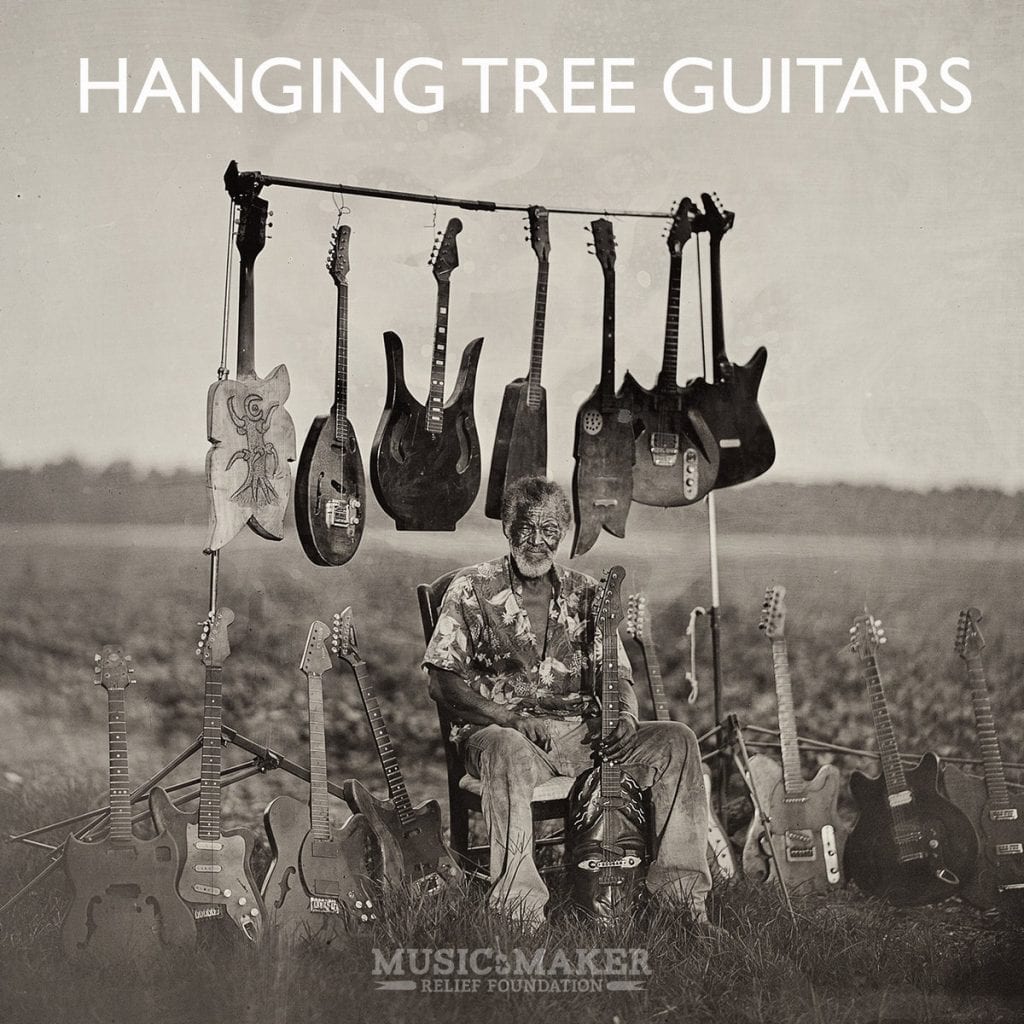Album Companion to ‘Hanging Tree Guitars’ Book Offers Raw Look at Race Relations

EDITOR’S NOTE: As album releases slow down in December, we like to catch our breath and write about albums that came out earlier in the year that we didn’t get a chance to review but we think are worthy of your attention. The Hanging Tree Guitars album was released in September.
Tim and Denise Duffy are caregivers. Their Music Maker Relief Foundation makes Christmas last all year long, providing financial, career, and emotional help for artists whose time in the spotlight has come and gone. Deserving young artists have also been given a hand up and a chance to give back by working with elder musical statesmen and women.
Tim Duffy has chronicled his work on record and in photographs, including a stunning collection of tintypes that display most of his Music Makers in all their weathered glory in 2019’s Blues Muse. He’s done it again with Hanging Tree Guitars, his work another stark study in black and white that complements author and luthier Freeman Vine’s passion for creating guitars from discarded items including old tobacco barns and radio parts. (Read ND books columnist Henry Carrigan’s review of the book here.) One of his most arresting creations is a series of guitars carved from a tree said to be have been used for lynching. The photos have a voice of their own, but the accompanying CD provides a soundtrack as stark and moving as anything that’s ever come out of the Duffys’ shop. Elemental and raw, it’s an in-your-face look at race relations from an insider’s point of view.
Guitar Gabriel’s “Southland Blues” underlines that message in no uncertain terms, Gabriel proclaiming that “People talk about slavery time, I believe it’s happening right now.”
Rufus McKenzie’s “Slavery Time Blues” is a handed-down vocal history of his grandfather’s life as an enslaved person. With just his voice and stark blasts from his harp, McKenzie warns that although times and administrations have changed, people of color still haven’t fully escaped the bonds of slavery. “They keep telling me that this country is free,” McKenzie sings mournfully. “Gonna be some change in the White House, people, don’t see no freedom here for me.”
Adolphus Bell dedicates his spoken-word piece, “Black Man’s Dream,” to Martin Luther King Jr. In his dream, the spokesman for the Black man tells the world “I fought on the battlefield, died, killed for America and still you don’t think I’m real / Change America, change / If you don’t put an end to this once and for all, I’m afraid everybody in America’s gonna fall / If you don’t change, you’re going straight to hell,” he shouts.
For sheer melancholy, it’s hard to beat Dr. G.B. Burt’s “Clock on the Wall.” It’s similar in tone and theme to Toussaint McCall’s swamp pop classic “Nothing Takes the Place of You,” but distinguishes itself with the insertion of Burt’s soaring falsetto flights.
Elder Anderson Johnson’s take on the traditional gospel “Glory Glory” is a gritty bare-bones offering made even more righteous by Johnson’s exuberant vocalizing and gloriously out-of-tune guitar accompaniment.
It’s fitting that James “Guitar Slim” Stevens should close the program, since he was the artist who first introduced Duffy to the local blues scene back when Duffy was studying for his master’s in folklore at the University of North Carolina. A word or two may fall out here and there, but Slim’s spirit never falters on his crusty, moving version of “Amazing Grace” that still gives us hope in these dark days.




